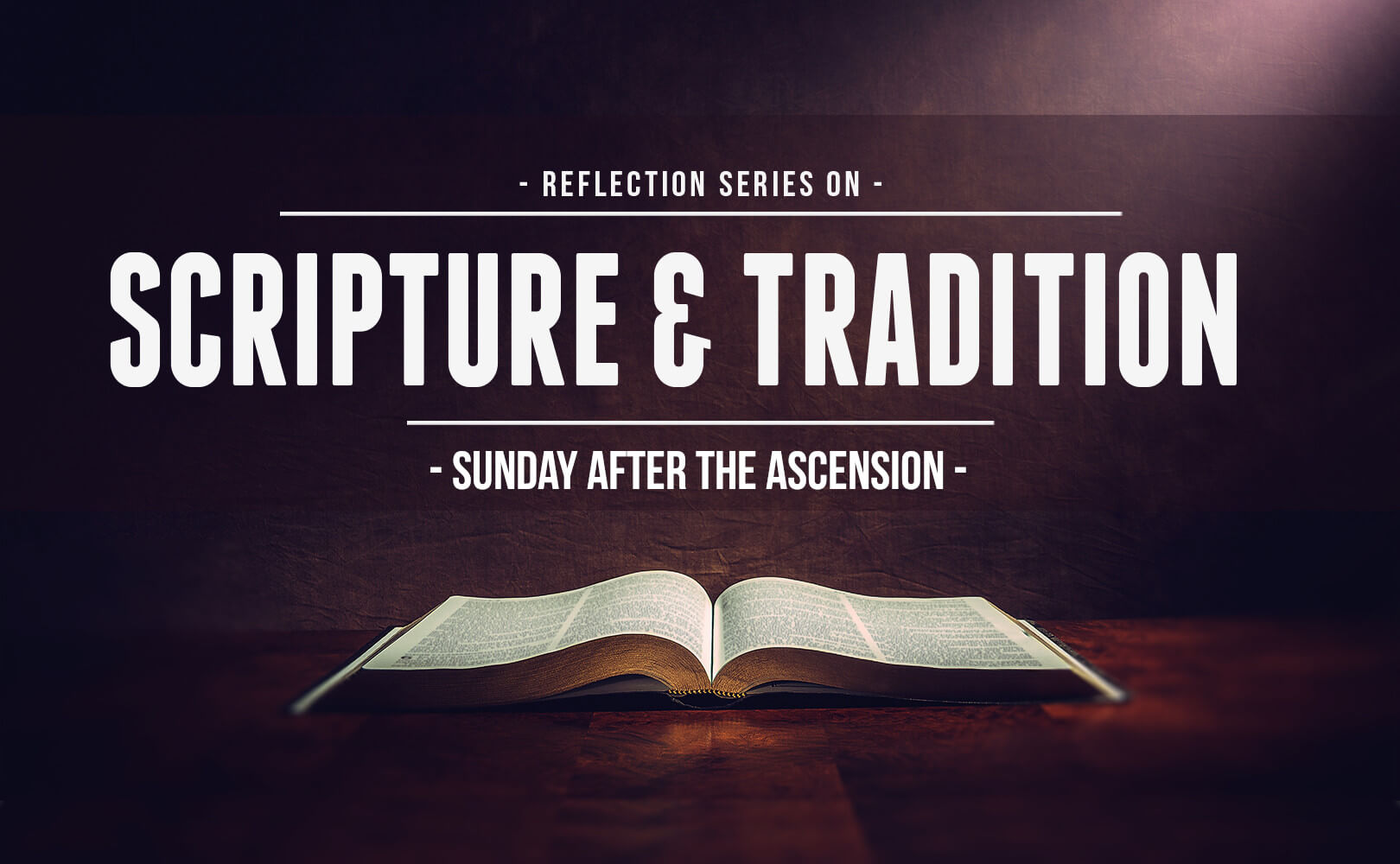Epistle: 1 Peter 4:7-11
Gospel: John 15:26-27; 16:1-4
Almighty and everlasting God, make us ever bear a devout affection toward Thee, and with a sincere heart to serve Thy majesty.
– From the Collect for the Sunday after the Ascension
We have now entered into Ascensiontide, that time of waiting between Our Lord’s Ascension and the descent of the Holy Spirit at Pentecost. Sunday’s readings tell us this is a time of prayer and good works that will prepare us to be sent out into the world.
Sunday’s Epistle, from St. Peter’s First Letter, tells us to “watch in prayers.” That is what the Apostles were doing after the Ascension: following the command of Christ to “ wait for the promise of the Father…[to be] baptized with the Holy Ghost” (Acts 1:4-5). This is the fulfillment of what Christ told them at the Last Supper, that he would “send you from the Father, the Spirit of truth, who proceedeth from the Father” (John 15:26). As the Apostles prepared to go out into the world, Our Lord reminded them of the foundation of any work done in his name: prayer and the guidance of the Holy Spirit. We depend completely on the Holy Spirit in order to do good works, as well as to persist in the Christian faith in spite of the world’s opposition.
After St. Peter writes that we should “watch in prayers,” he then commands, “Before all things have a constant mutual charity among yourselves, for charity covers a multitude of sins.” Here we see the intrinsic connection between faith and works, a connection the Protestant reformers tragically severed. If we pray but are not charitable, our prayers are useless; if we try to be charitable but do not pray, we are doomed to fail, for we need the power of the Holy Spirit to overcome our fallen nature. So as we await the coming of the Holy Spirit at Pentecost, we pray for strength and we live out our prayers in works of charity. Charity and faith cannot be separated; as St. Ambrose writes, “The one who sins does not love, for love covers a multitude of sins. Love cuts out the desire to sin, and since it also casts out fear, it is obviously full of perfect faith” (Letters to Priests, 48).
In Sunday’s Gospel we see another way in which the Holy Spirit is a necessary part of the Christian life. After Christ tells his disciples that he will send the Spirit to them, he says that they will “give testimony.” In other words, they will preach the Gospel to the ends of the world, working to convert all peoples to Christ. But such a testimony will be resisted by the world, and Jesus even says that “whosoever kills you will think that he does a service to God.” It’s humanly impossible to face such resistance and keep persisting, but the Holy Spirit gives us a power that’s supernatural: the power to be faithful in our witness, no matter who is against us.
We see this play out in history in the Acts of the Apostles. After recounting the story of Pentecost, Luke spends the rest of Acts relaying how the Holy Spirit empowered Peter, Paul, and all Christ’s followers to overcome many hardships to preach the Gospel. “We are to look to the example of the righteous who have gone before us and are to be joined to the love of God by death and sufferings” (St. Cyprian, Letter 55, 2). We have the same calling as the Apostles. Our lives might not be as outwardly heroic or exciting as theirs, but we are to follow the same path: pray for the Holy Spirit, receive Him, then under His power go out to the world to convert it.


